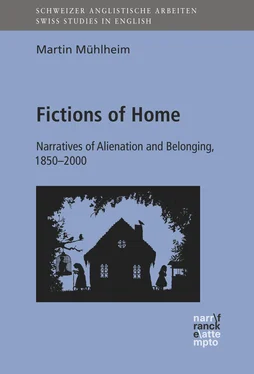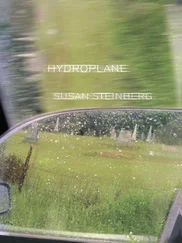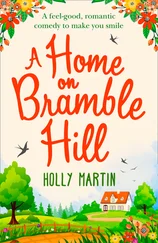In doing so, Eliot’s novel presents a vision of home – that supposedly safe and private space – as permeated and shaped by fundamentally public forces. It also presents home as a genderedgendering space owned by patriarchs who see the world mainly in terms of propertyproperty relations. Reverend Stelling’s decision to teach, for instance, is not based on any desiredesire on his part to contribute to the progressprogress of civilizationcivilization; he simply needs the money to finance his and his wife’s rather expensive lifestyle (113; bk. 2, ch. 1). Moreover, we have seen that Mr. Tulliver only decides to send Tom to a tutor because he wants to prevent the son from becoming his rival by one day claiming the mill as his own. Similarly, Mr. Tulliver fears that Maggie’s intelligence lowers her value as a marriageable commoditycommodity. Like Lawyer Wakem, Mr. Tulliver thus (at least occasionally) regards women as a piece of property, which suggests that belonging, for women, all to often means being owned by the male head of the householdhousehold, rather than feeling at home in the family or the wider communitycommunity.
Even Stephen Guest, who in many ways is the proponent of a younger, more ‘advanced’ generation of men, has no doubts that a woman’s role in life is defined through and by her relation to men. For instance, in the scene where we first meet Stephen, he asks Maggie’s cousin Lucy to “sing the whole duty of woman” from Handel’s The Creation (297; bk. 6, ch. 1), and is thus immediately associated with a view of women in terms of their duty to men – a view sanctioned by official religious discoursediscourse. In a later scene, Stephen angrily “bursts forth” that a bazaar organized by the women of St. Ogg’s takes “young ladies from the duties of the domestic hearth”:
I should like to know what is the proper function of women, if it is not to make reasons for husbands to stay at home, and still stronger reasons for bachelors to go out. If this goes on much longer, the bonds of society will be dissolved. (327; bk. 6, ch. 6)
The Father, the Teacher, the Lawyer, the Preacher, and even the young Capitalist thus all agree that belonging, for women, has little to do with a sense of ease, emotional attachment to people and places, or a modicum of controlcontrol over their own lives. Consequently, it is not difficult to understand why Maggie urgently wishes for an occupation that would allow her to “get my own bread and be independent” (e.g. 402; bk. 7, ch. 2) – that would, in Virginia WoolfWoolf, Virginia’s terms, allow her to have a room of her own.
What makes matters even more difficult for Maggie is that, despite the injusticesinjustice of a patriarchalpatriarchy society, there is much about her home to lovelove and cherish: her father can be affectionate (as in the treatment of his sister, Mrs. Moss; 64–72; bk. 1, ch. 7) and often takes Maggie’s side when others berate her; her mother may not really understand her, but always tries to protect her from harm; and Maggie is treated with genuine kindness not only by Philip, but also by Tom’s boyhood friend Bob, who helps the Tullivers after they lose their mill (bk. 3, ch. 6), and who even takes Maggie into his home when most people in St. Ogg’s treat her as an outcast because of her ‘failed’ elopement with Stephen Guest (bk. 7, ch. 1). In spite of patriarchalpatriarchy injusticeinjustice, home thus means more to Maggie than merely pain and restriction; it also holds the promise of fulfillment, intimacy, and kindness – the positive freedomfreedom that comes from belonging to others, as opposed to a negative libertyliberty that is defined through the absenceabsence of interference. It is true, of course, that the image of a carefree childhoodchildhood, a time when Maggie and her brother “clasped their little hands in love, and roamed the daisied fields together” (422; bk. 7, ch. 5), is a nostalgicnostalgia idealizationidealization. But it is also true that such moments of harmonyharmony do, at times, occur in The Mill on the Floss (as when Tom, at one point, tries to console little Maggie by kissing her and offering her a piece of cake – 34; bk. 1, ch. 5) – at least before Mr. Tulliver’s embittered command of revengerevenge thwarts the impulse toward forgivenessforgiveness that characterized Tom in his younger years. At the end of Eliot’s novel, Maggie must choose between this imperfect, but familiarfamiliarity home, and the vague promise of a ‘nomadic’ future with Stephen. It is very well possible that returning home is the wrong choice for Maggie (EagletonEagleton, Terry, The English Novel 178), but this is in some ways beside the point, for the real tragedytragedy is that she is forced by circumstances to make the choice at all.
One may, then, justifiably criticize The Mill on the Floss for its failure to see that one can, in fact, feel perfectly at home in a nomadic existence – whether it is a way of life inherited from one’s forebears (as in the case of the gypsiesgypsies), or whether it is freely chosen (as in the case of contemporary upper-classclass nomadsnomads who enjoy shuttling back and forth between the world’s metropolitan centers). Yet Eliot’s novel rightly emphasizes that nomadismnomadism is not a matter of positive, free choice for everyone. It is, as we have seen, not that for Maggie, who refuses the seductively modern choice of a ‘rootless’ existence and opts instead for a ‘pre-modern’ adherence to the familiarfamiliarity home. It is not necessarily so for the childrenchildren of today’s transnationaltransnational eliteelite, some of whom, according to recent studies, feel that they do not really belong anywhere (e.g. BluntBlunt, Alyson and DowlingDowling, Robyn 218–219). And nomadic existence is certainly not a free choice for those who suffer what J. Douglas Porteous and Sandra E. SmithSmith, Sandra E. refer to as domicidedomicide: “the deliberate destruction of home by human agency” (12). In nineteenth-century BritainBritain, it was still possible to imagine that those who abandoned their homes did so freely, although for the poor this ‘freedomfreedom’ in fact often consisted in a desperate attempt to avoid economic hardship or even famine, as was the case in IrelandIreland during the 1840s (Daunton 47; Harvie 506).131 The first half of the twentieth century, however, would come to be dominated by the more directly enforced mass migrations precipitated by genocidalgenocide, total war (ManningManning, Patrick 164). From the mid-nineteenth century onwards, in short, the threat of homelessnesshomelessness and exileexile became an increasingly real prospect for Europeans (as it had long been for the colonized and the enslaved). It is against this backdrop that we should read both the great VictorianVictorian domestic tragedytragedy of The Mill on the Floss as well as the masterpieces of Modernist fiction – including Virginia WoolfWoolf, Virginia’s Mrs. Dalloway.
3 “The Majesty of EnglandEngland”: The Ethics of Home and the Imperial City in Virginia WoolfWoolf, Virginia’s Mrs. Dalloway
For European modernists after 1914, writing about home meant coming to terms with the impact of globalglobal and globalization war.132 Consider, for instance, the novel that many believe to be the period’s greatest achievement: James JoyceJoyce, James’s Ulysses (1922), written abroad and named after a hero who, after a protracted and devastating war, can no longer seem to find his way home. At the same time, though the long nineteenth century had arguably come to a close with the armistice on November 11, 1918 (e.g. OsterhammelOsterhammel, Jürgen 88), to political commentators in the early 1920s the meaning of the historical moment was far less clear than it seems in hindsight. The United KingdomUnited Kingdom, for instance, mourned the deaths of hundreds of thousands in the bloodiest conflictconflict in human history, but the country had also emerged victorious from the war, and the British EmpireEmpire in many respects appeared more unified and powerful a world system than ever (Jeffrey 13; see also North 54). Given this strange commixture of triumph and traumatrauma and shell shock, the profound sense of ambivalenceambivalence that pervades English postwar novels like Mrs. Dalloway (1925) is hardly surprising.
Читать дальше












